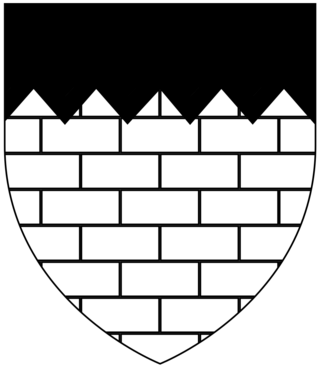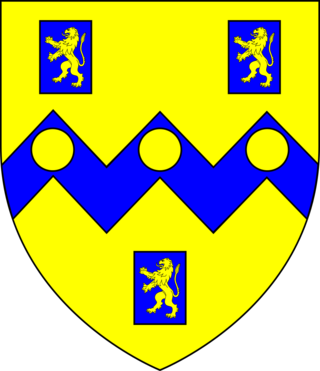Related Research Articles

John St Aubyn (1613–1684) was an English politician who sat in the House of Commons of England in 1640. He served as a colonel in the parliamentary army in the English Civil War.
Sir Hugh Bethell was an English politician who sat in the House of Commons at various times between 1654 and 1679.
Thomas Cole (1622–1681) was an English politician who sat in the House of Commons in 1656 and 1660.
John Whiteway was an English wool merchant and politician who sat in the House of Commons at various times between 1654 and 1660.
John Kendall was an English politician who sat in the House of Commons at various times between 1659 and 1685.
John Goodwin was an English lawyer and politician who sat in the House of Commons at various time between 1641 and 1660. He supported the Parliamentary cause in the English Civil War.
Henry Arthington was an English politician who sat in the House of Commons at various times between 1646 and 1660.
Sir Richard Grobham Howe, 2nd Baronet, was an English politician who sat in the House of Commons at various times between 1656 and 1695.

Thomas Reynell of East Ogwell, Devon, was an English lawyer and politician who sat in the House of Commons at various times between 1654 and 1689.
Francis St John was an English lawyer and politician who sat in the House of Commons at various times between 1654 and 1698.
Sir Samuel Jones was an English politician who sat in the House of Commons in 1656 and 1660. Although a parliamentarian in the English Civil War he later became a strong Royalist.
Henry Mildmay was an English politician who sat in the House of Commons at various times between 1654 and 1692. He fought in the Parliamentary army in the English Civil War.

Sir Francis Rolle (1630–1686) was an English lawyer and politician who sat in the House of Commons at various times between 1656 and 1685.
Samuel Ashe was an English lawyer and politician who sat in the House of Commons in 1659 and from 1679 to 1681.
Thomas Chaplin (1591–1672) was an English draper and politician who sat in the House of Commons in 1659 and 1660.

Chaloner Chute (1632–1666) was an English lawyer and politician who sat in the House of Commons in 1659 and 1661.
Richard West was an English landowner and politician who sat in the House of Commons from April 1660 until the election of March the next year.
Jeremiah Tolhurst (1615–1671) was an English tailor, soldier, businessman and politician who sat in the House of Commons at various times between 1654 and 1660. He fought in the Parliamentary army in the English Civil War.
William Coles (1616–1697) was an English lawyer and politician who sat in the House of Commons in 1659 and in 1660.
Sir William Beecher was an English politician who sat in the House of Commons from 1667 to 1679.